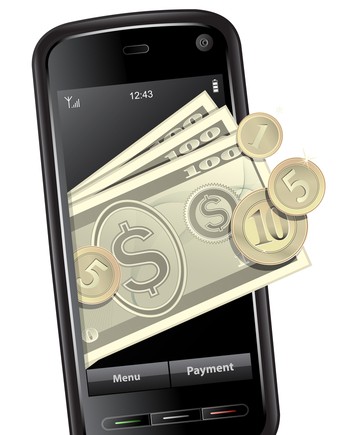Often we get our cell phone bills and there are charges that we don’t agree with. We may have gone over our texting limit, or our data limit, or something along those lines. But for the most part they are charges for services for which we signed up. When charges show up that are new and for services that were not ordered, people will fight back. The FTC has recently announced that they too have joined the fight by pursuing the first case against mobile cramming.
Mobile cramming is basically unwarranted charges on a person’s bill (these extra charges are “crammed” into the bill). They could be items that the user unknowingly signed up for, or they could be services for which the user did not sign up for. Regardless of why the charges are crammed into their phone bill, many people have a tough time picking them out of the lineup of legitimate charges.
The FTC’s latest case is against Wise Media alleging they are responsible for cramming customer’s phone bills. Often what would happen is Wise Media would send out a text message telling a person that they were signed up for the service. But since texts often come from spammers, they were ignored and deleted. On the next bill there would be a $9.99 charge that was written in such a way that people could not tell quite what it was. Many of them thought it was simply another tax or addition to their bill from the phone company. When those who noticed it and protested it, the process to collect a refund was long and drawn out.
The FTC has filed a complaint and asked the courts to freeze Wise Media’s assets. The Commission is seeking to use the assets from Wise Media to at least partially repay those who were victimized by the fraudulent charges. At this time there is no indication as to the monetary assessment of the complaint.
This is the first mobile cramming case that the FTC has investigated. In May, however, there will be a roundtable discussion on mobile cramming and how it should be handled in the future. The discussion will help the FTC be better equipped at pursuing these types of cases in the future.
The process of cramming charges onto a phone bill is not a new one. It has been around since long before cell phones became prevalent. But they are relatively hard to prosecute. If the customer signs up for the service, there is not much that can be done. Even when it is a sleazy tactic it is still legal. However, the FTC is taking steps to protect the consumer. As they start to crack down on those cramming mobile devices, the instances will become fewer and fewer.
Often we get our cell phone bills and there are charges that we don’t agree with. We may have gone over our texting limit, or our data limit, or something along those lines. But for the most part they are charges for services for which we signed up. When charges show up that are new and for services that were not ordered, people will fight back. The FTC has recently announced that they too have joined the fight by pursuing the first case against mobile cramming.
Mobile cramming is basically unwarranted charges on a person’s bill (these extra charges are “crammed” into the bill). They could be items that the user unknowingly signed up for, or they could be services for which the user did not sign up for. Regardless of why the charges are crammed into their phone bill, many people have a tough time picking them out of the lineup of legitimate charges.
The FTC’s latest case is against Wise Media alleging they are responsible for cramming customer’s phone bills. Often what would happen is Wise Media would send out a text message telling a person that they were signed up for the service. But since texts often come from spammers, they were ignored and deleted. On the next bill there would be a $9.99 charge that was written in such a way that people could not tell quite what it was. Many of them thought it was simply another tax or addition to their bill from the phone company. When those who noticed it and protested it, the process to collect a refund was long and drawn out.
The FTC has filed a complaint and asked the courts to freeze Wise Media’s assets. The Commission is seeking to use the assets from Wise Media to at least partially repay those who were victimized by the fraudulent charges. At this time there is no indication as to the monetary assessment of the complaint.
This is the first mobile cramming case that the FTC has investigated. In May, however, there will be a roundtable discussion on mobile cramming and how it should be handled in the future. The discussion will help the FTC be better equipped at pursuing these types of cases in the future.
The process of cramming charges onto a phone bill is not a new one. It has been around since long before cell phones became prevalent. But they are relatively hard to prosecute. If the customer signs up for the service, there is not much that can be done. Even when it is a sleazy tactic it is still legal. However, the FTC is taking steps to protect the consumer. As they start to crack down on those cramming mobile devices, the instances will become fewer and fewer.







